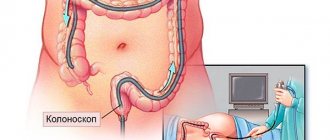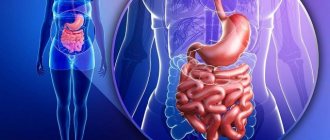What is bulimia nervosa? This is a fairly widespread mental illness today. The deviation is characterized by periodic episodes of overeating. At first, a person consumes a fairly large amount of high-calorie food, but after overeating, he feels guilty for what he has done and rushes to get rid of the food by inducing vomiting. Regular forced cleansing of the gastrointestinal tract certainly affects not only the mental, but also the physical health of a person. Bulimia, like any other disease, requires treatment. To suppress irresistible attacks of hunger and gluttony, as well as to replenish the balance of vitamins and microelements in the patient’s body, pills for bulimia and overeating are used.
Principles of treatment for bulimia
People susceptible to this rather serious disease need both medical treatment with drugs for bulimia, and psychological assistance. The disease develops in three directions: physiological, emotional and behavioral. That is why there are three directions in the complex treatment of the disease.
- First of all, it is important to identify the causes of its occurrence and eliminate the psychological component of the disease. For this purpose, psychologists conduct individual sessions with the patient. Their goal: to teach a person self-control and cope with stress without overeating. The doctor helps a person develop a positive attitude towards himself and his appearance, accept himself, and increase motivation for recovery.
- The second point is adherence to a certain diet. The patient must carefully monitor what and how much he eats. A nutritionist should monitor eating behavior. The menu of a recovering person should contain the optimal amount of proteins, fats and carbohydrates. A balanced diet is the basis of every person’s health.
- Treatment of bulimia nervosa with drugs. Medications for bulimia are prescribed by a doctor only after examination and examination. Medicines for bulimia and compulsive overeating are prescribed by a psychologist, as well as other specialists in case of health problems based on diagnosis, existing indications and contraindications. For bulimia, appetite suppressant pills are used already at the initial stage of therapy, this helps to achieve recovery faster, help the person in the recovery process and eliminate the unwanted consequences of the disease.
- Doesn't want to be treated
? - Motivation for treatment
It is always easier for qualified specialists to find an approach to an addicted person. Our staff provides motivation and intervention assistance 24/7. We deliver the patient directly to the social adaptation center. 8
Psychosomatic manifestations of bulimia
Bulimia does not occur suddenly. This eating disorder develops and progresses over a long period of time. In the initial stages, it causes only positive emotions from eating your favorite foods, and negative feelings come later.
Attack-like overeating is accompanied by such emotional consequences as:
- self-accusation;
- remorse;
- feeling of self-hatred;
- awareness of one's own weakness and lack of will.
During an attack of bulimia, a person realizes his weakness and begins to feel sorry for himself. The physical pleasure that the patient experiences while eating food makes him addicted and he is unable to stop in time. This continues to the point of pain and discomfort. He promises himself that this is the last time he eats in such quantities, and tomorrow he will go on a strict diet and this will never happen again. Then comes repentance. Inducing vomiting, taking laxatives, enemas are ways of self-punishment, an attempt to justify one’s lack of will and return everything to its previous state.
Drug treatment for bulimia
Let us consider in more detail how drug therapy should be carried out in the presence of this disease. Most often, treatment is carried out on an outpatient basis, which means that the patient visits doctors and the necessary classes on his own, and comes to the clinic at a time convenient for him. Or receives all the necessary help at home. In severe cases, hospitalization in a hospital is required. For example, if the patient has suicidal tendencies, depressive disorders and other mental disorders. In addition, inpatient conditions are necessary for people with severe concomitant diseases of internal organs. In most cases, medications for bulimia nervosa are potent and therefore are not sold in pharmacies without a doctor's prescription.
Over-the-counter medications for bulimia are vitamins, minerals, dietary supplements, and other substances that are used to reduce appetite. However, you should not self-medicate when overeating. This will not only be ineffective, but also very dangerous, since patients have emotional abnormalities, as well as somatic consequences such as pain in the stomach and intestines, spasms, cramps, and swelling. You should trust your health to doctors, and not let the disease take its course. It tends to progress, so treatment should be started as early as possible.
Treatment is carried out by psychotherapists and psychiatrists, they prescribe drug therapy and select an individual treatment regimen, taking into account the severity of the disease and seizures. However, quite often patients decide to give preference to self-medication, which is not only ineffective, but also poses a threat to health and life. Next, we will consider what drugs are used to eliminate this disease.
Hidden danger
It would seem that there is nothing wrong with the fact that a person sometimes loses control over himself, eats too much, and then gets rid of what he has eaten. Who does this bother? Or why it might be dangerous? After all, people suffering from bulimia most often carefully monitor their own weight and exercise. At the same time, they diligently hide their eating behavior disorders.
In fact, bulimia is a very terrible disease and it is almost impossible to recover on your own. What threat does she pose?
Unlike other eating disorders, it is quite difficult to identify bulimia even in a close relative, unless the person himself goes to the clinic. Therein lies the problem. People around you begin to notice the disease only when the consequences of digestive disorders become noticeable. These include:
- Severe pathologies of the cardiovascular system.
- Anemia.
- Endocrine disorders in women, expressed in frequent disruptions of the menstrual cycle or its complete absence.
- Diseases of the digestive tract.
- Ruptures of the stomach or esophagus due to frequent artificially induced vomiting.
- Deterioration of the condition of teeth and mucous membranes due to contact with gastric juice.
In addition, the stomach, which is not allowed to digest food, but is forced to get rid of it by inducing vomiting, after a while begins to do this on its own. Even after eating a small amount of food, a person can no longer control the gag reflex. In this case, you can no longer do without the help of specialists.
It should be remembered that the earlier an eating disorder is diagnosed and treatment is started, the shorter the duration and the more effective it will be. Don't underestimate bulimia.
Antidepressants without a prescription
Effective, potent over-the-counter antidepressants cannot be purchased in a pharmacy in Russia, and it is illegal to sell drugs without a prescription. They are used today to treat eating disorders as part of a comprehensive recovery course. However, you can buy affordable mild antidepressants at a pharmacy without a prescription. Over-the-counter antidepressants are vitamin-mineral complexes and dietary supplements (anti-anxiety).
Among them:
- Novopassit (herbal medicine containing valerian, St. John's wort, lemon balm) eliminates anxiety and has a sedative effect;
- Neurofulol (contains vitamins and an amino acid that is involved in the synthesis of brain neurotransmitters, for example, serotonin, which improves a person’s mood) eliminates anxiety, insomnia, and depressive states;
- Glycine (nootropic) normalizes blood circulation in the brain, eliminates emotional stress, and stimulates the central nervous system.
Psychotropic drugs
More than 50% of medications used in the treatment of bulimia are medications containing psychotropic substances. The list of pills for bulimia is quite wide; today, antidepressants, sedatives and anti-anxiety drugs are used to a greater extent. Regular use of psychotropic medications is necessary to restore the patient’s psycho-emotional state, as well as his biorhythms, diet and sleep patterns.
Psychotropic drugs are sold only with a doctor's prescription. Medicines and their doses are prescribed by a specialist individually, depending on health status, age, duration of the disease, and the frequency of attacks of uncontrolled food consumption. It is impossible to purchase psychotropic drugs without a prescription, as they become the object of attention of drug addicts. Among drug addicts, pills for bulimia nervosa are in high demand. A specialist can prescribe from one to five drugs at a time.
The most common treatment for bulimia is tranquilizers. As is known, if used irrationally and not following the doctor's prescription, medications cause drug dependence. That is why they are not only not sold without a prescription, but are also taken under the strict supervision of a specialist; in no case should you increase the dosage, as well as extend the course of treatment yourself, otherwise it can develop into a dangerous and difficult-to-treat addiction.
Among the popular drugs used today for bulimic disorders is Phenazepam. It is he who is today a widely used pharmaceutical drug from the group of benzodiazepines. When fighting the disease, tranquilizers are often prescribed together with antidepressants such as fluoxetine, the irrational use of which can also lead to the development of pharmaceutical drug addiction.
Dependence on pharmaceutical drugs is quite difficult to treat, so you should not neglect the instructions for use of a particular drug and the prescription of the doctor who prescribed it. The duration of taking medications for bulimia varies from person to person; as a rule, it is about a month.
Statistics of those who applied to CZM from 2004 to 2022:
Causes
Some experts suggest that one of the reasons for the development of bulimia may be a hereditary factor. That is, if one of the relatives has ever had such eating disorders, there is a possibility that they will appear in future generations. However, this theory has not been scientifically confirmed in any way, so its reliability remains at the level of hypotheses.
A person's environment has a huge influence. Since bulimia most often develops during adolescence or adolescence, young people during this period of life are very susceptible to external influences. The maximalism inherent in this stage of personal development does not always contribute to making the right decisions. The constant imposition of “ideal beauty standards” ultimately does its job.
The attitude towards food in the family plays an important role in the development of bulimia. If it is perceived not as a source of vital energy, but as a reward or a means of comfort, then the chances of acquiring an eating disorder increase significantly.
If you are overweight, constant reproaches from others and a strict ban on specific types of foods can lead to bulimic disorder. A teenager, trying to prove that he is better than they think he is, begins experiments with his own body, which sometimes have dire consequences.
The psychological aspect of the formation of bulimia is a persistent desire to have control over the situation. Such people, most often, fail to properly influence the problematic circumstances of their personal lives. Therefore, they find areas where they can control the problem without taking into account the opinions of outsiders - this is eating behavior. The mental discomfort that arises from the inability to influence the situation is compensated by controlling one’s own body weight.
Drugs to suppress appetite and hunger
Appetite correctors and anti-overeating pills will help a person form new eating habits and learn to control the quantity and quality of food consumed. A remedy for overeating will help you learn self-control and develop the willpower necessary for complete recovery.
Pills for bulimia and overeating have the most powerful effect and help patients at the first stage of complex treatment, when psychotherapy has not yet had time to fully act, and the desire for cure is not yet completely stable. Pills for compulsive overeating are classified as appetite correctors that cannot be purchased at a pharmacy without a prescription. Among them are the previously mentioned Fluoxetine, as well as Reduxin, Ricin, Sibutramine and many other drugs.
Treatment without drugs
Many people suffering from this insidious disease are concerned with the question: is it still possible to cure bulimia on your own and without medications? The use of cognitive behavioral therapy gives good results. Its use is possible both in complex treatment and as an isolated method.
During behavioral psychotherapy sessions, a specialist helps you learn new ways to deal with stress and reinforces the skills of proper eating behavior. There is a stabilization of appetite, and a reduction in episodes of gastric cleansing is observed.
Psychotherapy can be aimed at finding personal problematic issues that originate in early childhood. Such factors that provoke bulimia require detailed consideration. The level of increase in self-esteem and the replacement of the method of relieving psychological stress from overeating to a more productive one depends on this. Group and individual sessions are available.
Additional methods of psychological influence will help you get rid of and forget about bulimia forever:
- hypnosis sessions;
- deep psychoanalysis;
- participation in cognitive training;
- yoga classes;
- nutrition training course.
It should be remembered that there are no “magic” pills for bulimia. Each patient requires an individual professional approach and a long period of healing.
Over-the-counter appetite correctors
Among the main goals in the treatment of bulimia nervosa is the elimination of pathological cravings for food and overeating. In addition to dietary supplements, medications that suppress appetite are used. Along with drugs that cannot be purchased without a doctor’s prescription, there are also relatively safe ones that do not cause drug dependence, addiction, or unwanted side effects in the form of pharmacy addiction. It is important to understand that the use of these medications should also be supervised by a doctor. Self-medication can lead to dire consequences.
If a person feels hungry less often, the risks of breakdowns and gluttony are minimized. Strong medications are prescribed by your doctor, but there is a whole list of pills for bulimia without a prescription.
- Turboslim is a fairly common dietary supplement in our country, positioned as a diet pill. It has a herbal composition, helps speed up metabolic processes in the body, reduce hunger and cleanse the body of toxins.
- Cotton fiber (microcrystalline cellulose) swells after consumption and creates a feeling of satiety and removes toxins.
- Reduxin light. Linoleic acid in this dietary supplement affects the production of enzymes responsible for fat metabolism. This helps the body get rid of subcutaneous fat and significantly reduce the need for food.
- Garcinia forte is a herbal medicine that contains essential vitamins, accelerates the fat burning process, and reduces appetite;
- Orlistat prevents the absorption of fats from the gastrointestinal tract and promotes rapid weight loss.
- Porciola contains an active substance that, when it enters the stomach, is converted into a gel, which helps reduce appetite and eliminate the feeling of hunger. Satiety occurs quickly, which prevents gluttony.
Do you want to know about the cost of services?
8 call our specialist
Can bulimia be cured?
The capabilities of the human body are enormous. But people tend to underestimate themselves, finding some reasons and excuses. Therefore, we can confidently say that getting rid of the eating disorder in the form of bulimia is quite possible. At the very least, you should try to adhere to a few simple rules:
- Take action today. Don’t wait for tomorrow or Monday, but take at least some action aimed at getting rid of addiction. Be strict and demanding of yourself, forget about self-compassion.
- Prioritization. You need to determine what is most important in a particular situation. The desire to lose weight always gives way to the desire to be healthy. You just need to have the courage to honestly admit it to yourself.
- Stop sharing food.
Products should not be divided into right or wrong, harmful or useful, acceptable or prohibited. You need to treat food only as a source of energy necessary for the life process, while allowing yourself everything in reasonable quantities. As soon as the brain fixes any prohibition for a specific product, it immediately seeks to provoke a breakdown and another act of overeating.
Therefore, it is important to convince yourself that food is a vital attribute and it is impossible to live without it. We must remember that we all live in the 21st century, so eating exclusively plant-based foods would be simply stupid. The ability to use the benefits of civilization and benefit from it is essential.
Modern treatment methods allow the patient to get rid of bulimia and return to normal life. During drug-free psychotherapy, a person re-learns to listen to his own desires, control them, and also determine his place in society, without sacrificing his self-esteem.
Dangerous drugs
On the Internet and social networks you can find hundreds and thousands of tips in which people are asked to try various diet pills. Numerous forums describe miracle drugs that not only reduce appetite, but also promote weight loss and cleanse the body in the shortest possible time. Should we believe such promises? Will those methods of combating bulimia and excess weight be effective, or is it a waste of money?
It is worth remembering that therapy for a psychophysical disease must be comprehensive and prescribed by a doctor. The websites advise using diuretics and laxatives (tablets, teas, capsules), as well as psychoactive drugs that are difficult to buy at a pharmacy without a prescription. Yes, perhaps a person will lose a few kilograms, but this will not help in eliminating the disease and will cause a whole list of severe side effects, including involuntary vomiting, intestinal atony, kidney failure, and digestive problems.
Do not think that the advertised popular remedies will help you get rid of the disease overnight. Tea alone for weight loss cannot cope here; medications are also needed to normalize the psycho-emotional state, work with a psychologist, eliminate the root causes of overeating and their gradual elimination, coupled with the use of medications. If you take medications irrationally, self-medication can lead to death or overdose.
Anonymous24 hours a dayCheck out in 2 minutesRelief in an hour
Full range of narcology services:
- Withdrawal from binge drinking
- Encoding
- Psychiatry
- Consultation with a narcologist
Call me back!
8+7
Anorexia and bulimia pills without a prescription
Today, anorexia among girls is almost becoming normal; there are quite a few groups where girls strive for extreme weight loss, without thinking at all about the consequences. The following daily diet is often found: a cigarette, coffee and an apple. The body will not survive for long on such a diet; even after long-term rehabilitation, anorexia leaves negative health consequences for the rest of your life. These are problems with the stomach and intestines, metabolism, kidneys and liver, as well as mental disorders that require long-term treatment.
Quite often among anorexics you can find advice on drug treatment with drugs that are not intended for this at all. In our country in recent years, the number of cases of drug abuse, as well as drug addiction, has increased significantly. Girls often use amphetamines to lose weight. This anorexigenic drug is a common drug. Not all people who became addicted knew that they were not using medicine, but a narcotic drug. However, even knowing this fact does not stop them. They see the effect and can't stop. If your loved one is addicted to drugs or is abusing drugs, you should urgently call a drug treatment clinic. The “Center for Healthy Youth” operates not only in Moscow, but throughout Russia. We help drug addicts get rid of their bad habits and overcome the disease. Complex therapy includes not only medication, but also psychotherapy, which is necessary in this case.
Among the pills that girls use for bulimia without prescriptions are:
- Furosemide. This is a fast-acting medicine that has a diuretic effect. It is prescribed to patients with increased blood pressure and swelling. If used irrationally and inappropriately, it can lead to fainting, heart rhythm disturbances, and convulsions.
- Fluoxetine. This is a drug that cannot be purchased legally at a pharmacy without a prescription, but unscrupulous sellers sell it illegally on the Internet and social networks. Yes, this antidepressant eliminates the feeling of hunger, but it leads to other undesirable consequences: nervousness, irritability, anxiety, depressive tendencies and suicidal thoughts. This is a very dangerous drug that should be treated with extreme caution.
- Bisacodyl. This medication is prescribed for chronic constipation and during the preparatory period before surgical interventions. Regular uncontrolled use of laxatives causes the development of intestinal atony, muscle rigidity, drop in blood pressure and dehydration.
Treatment period
Like any other addiction, you can get rid of bulimia only if the patient sincerely wants it. There is no point in forcibly treating eating disorders. It should be taken into account that the duration of therapy can range from six months to 2-3 years. Yes, this is a considerable period of time, but this does not mean that it will have to be spent in a medical institution.
A long period of treatment is simply necessary to restore both individual organ functions and the body as a whole. This is due to the fact that the disorder did not appear in one day or even a month, it developed and progressed over several years. Accordingly, it is not possible to cure it in several therapy sessions.
At the very beginning of treatment, it is necessary to determine the factors that pushed the patient to develop bulimia, among them may be:
- some diseases that affect areas of the brain that are responsible for appetite and the feeling of satiety in the body. The pathology can be caused by hyperthyroidism, a tendency to insulin resistance, or diabetes mellitus;
- the habit of overeating, instilled from early childhood. This happens when the child has already satisfied his hunger, but the parents forbid throwing away the leftover food. In order not to upset them, the baby silently finishes the portion. Over time, this becomes a habit, and in adolescence it develops into bulimia;
- emotionally unstable psychological background of the individual. Such people suffer from low self-esteem, an increased sense of responsibility and a lack of personal opinion. The feeling of helplessness and hopelessness leads to prolonged nervous tension, turning into bulimic attacks;
- stressful situations. In the process of eating food, unpleasant experiences from external negative factors are noticeably reduced. The body remembers this feeling and strives to repeat it, so the slightest stress provokes uncontrollable gluttony.
In complex or advanced cases, the treatment period for bulimia is up to 5 years or longer. Regular visits to a specialist are a prerequisite for achieving a positive result.
Recovery
To restore a weakened body after an illness, it needs to take vitamin and mineral complexes. During the recovery period, a balanced diet is important, since during illness people eat everything, junk and high-calorie foods: pizza, hamburgers, sandwiches, sweets, buns, candies, etc. Such food helps to quickly fill up and reduces discomfort during forced cleansing of the stomach and intestines.
People susceptible to bulimia most often develop a deficiency of vitamins A, B, C, K, D, PP and C. Regular provocations of vomiting and diarrhea lead to disruption of the body’s water-salt balance and dehydration. The leaching of elements such as magnesium, potassium and calcium leads to spasms, convulsions, and heart rhythm. To replenish the reserves of useful substances in the body and speed up its recovery, patients take vitamins and minerals, and they are also injected intramuscularly with ionic solutions.
Signs of the disease
Visually recognizing the symptoms of bulimia at an early stage of its development is almost impossible. The disease is usually detected when the patient experiences noticeable weight loss or the following symptoms:
- reluctance to eat in crowded places (cafes, restaurants, canteens);
- refusal of family holidays and feasts;
- careful study of the components of the product, a picky attitude towards dishes prepared by other people;
- visible changes in diet - either excessive dietary restriction or obvious overeating;
- tendency to solitude after eating, long stays in the restroom;
- frequent complaints of weakness, poor health, low blood pressure, dizziness and even fainting;
- sudden and causeless mood swings or prolonged depression.
Against the backdrop of a lack of nutrients, changes occur in the body that become noticeable to others over time. Dull, split ends begin to fall out over time, and brittle, peeling nails in no way decorate a girl.
The skin with bulimia is also not in the best condition. In addition to the fact that it flakes and turns pale, with sudden weight loss there is a possibility of the formation of unaesthetic hanging folds on the face and other parts of the body.
Changes gradually occur in the internal organs, and in order to return them to their previous performance, a lot of effort must be made. During uncontrolled bouts of overeating, the stomach stretches, so each time it requires more and more food. It is becoming increasingly difficult to stop this process.
However, the mental state of the patient suffers first. It is at this level that an eating disorder begins to progress. All the patient’s thoughts are occupied with maintaining or losing weight, diets, a healthy lifestyle, proper nutrition, etc. Conversations always come down to discussing these problems, and attempts to change the topic cause irritation and dissatisfaction.








